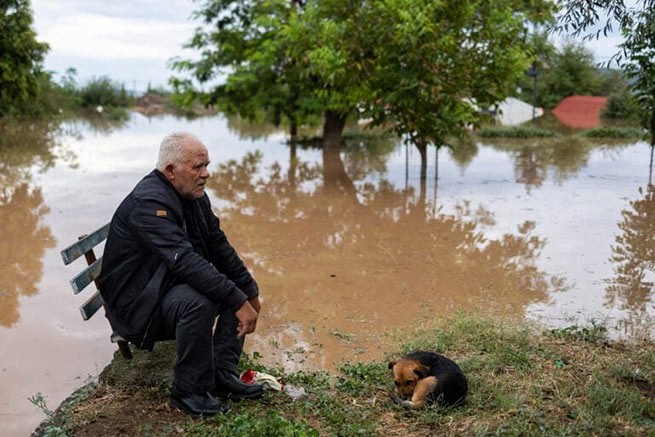In recent years, Greece has been going through a “demographic winter”, and forecasts of an increase in an aging population and a declining birth rate seem ominous.
Presumably by 2050, the number of the population with middle and older age will increase significantly, and the number of school-age children will decrease from 1.6 million to 1-1.4 million. Experts come to such alarming conclusions, according to estimates that in 80 years the population of Greece will decrease by 1/4.
The aging of the population and the decline in the birth rate, which seems to be registering not only in Greece, but also in many developed countries, combined with population migration and immigration flows in and out of our country, create one of the biggest problems in the coming years. To this end, the OECD will establish a “Population Centre” (Κέντρο για τους Πληθυσμούς) in Crete. The initiator of this idea was the Ambassador and Permanent Representative of Greece to the OECD, George Stylianos Prevelakis.
The official first presentation of the creation of the Center took place on Thursday on March 23 in Hannia, in the Mediterranean Architectural Center at an event called “Greece and Crete in the center of the problems of the population” (“η ελλάδα και κρήτη στο επίκεντρο των των ζητημάτων”), which was carried out in cooperation with the Economic Forum of Delphi and the municipality of Chania. At the event, speakers presented figures and facts, tasks for which the Center will be called upon to find the best possible solutions.
Populations in all developed countries continue to age, Mark Pearson, OECD Deputy Director for Employment, Labor and Social Affairs, said in a speech at the event: not because people live longer, but because fewer children are born. The number of people over 65 in OECD countries has nearly doubled in recent decades. In 1960 they were 9%, today – 17%, and in 2050 – 27%. Greece will be one of the countries that will see the biggest increase in the aging population. You have one of the highest longevity rates in the OECD, but the birth rate is very low at 1.3 children per woman.” Mr. Pearson did not fail to point out, among other things, to what extent the consequences of these demographic changes for economic and social development will be serious with a reduction in the labor force.
The representative of the organization διαΝΕΟσις, Fay Makandasi, notes that the average age of the population in Greece in 1951 was 30 years, in 2015 it rose to 43.5 years, and in 2050, it is estimated that it will increase to 47-50 years. It also follows from the study that the number of school-age children (3-17 years old) from the 1.6 million that we have today will decrease from 1.4 million (optimistic scenario) to 1 million children (pessimistic scenario) in 2050.
Director General of the Foundation for Economic and Industrial Research (IOBE), professor at the Athens University of Economics and Business Nikos Vettas said that it is estimated Eurostat, in 80 years the population of Europe will decrease by 5%, and Greece by 24%. In addition, he presented data showing a decline in the birth rate from 118,000 in 2008 to 85,000 in 2020. As the professor said, there is no empirical evidence that female entry into the labor market will lead to a decrease in fertility. According to the study, fertility is now higher in countries with high levels of women’s participation in the labor market.
Among other things, Mr. Vettas noted that there is a relationship between economic development and population flows: “If the economy develops well, people will not leave the country, other people will come, the labor force employed in production. What happened during the economic crisis was that many immigrants left Greece, followed by the Greeks. It is doubtful that they will return. The economy is suffering.”
Professor of the history of the post-war world at the Department of History and Archeology of the Faculty of Philosophy of the University of Athens, Evantis Hatzivasileu, in his speech emphasized that declining birth rates and population dynamics will be Greece’s biggest problem, and extraversion is the only “way forward.”
At the event, Delphi Economic Forum President Simeon G. Tsomokos emphasized: “We are called upon to answer questions such as how we can support and at the same time protect our societies from population aging, how to revive the economy and ensure the longevity of pension systems, and how to capitalize on phenomena of global mobility, without “bringing discord”.
Mayor of Chania Panagiotis Simandirakis delivered a welcoming speech, saying that the work of the center “Κέντρο για τους Πληθυσμούς” become a tool for solving population problems. And the regional governor of Crete, Stavros Arnautakis, spoke about the pioneering efforts that are activating the political machinery in an era of global change.







More Stories
Low wages and inflation "drown" Greek youth
Greece becomes a 'safe haven' for German pensioners
Bark Air: New airline specializing in pet transportation launches in May